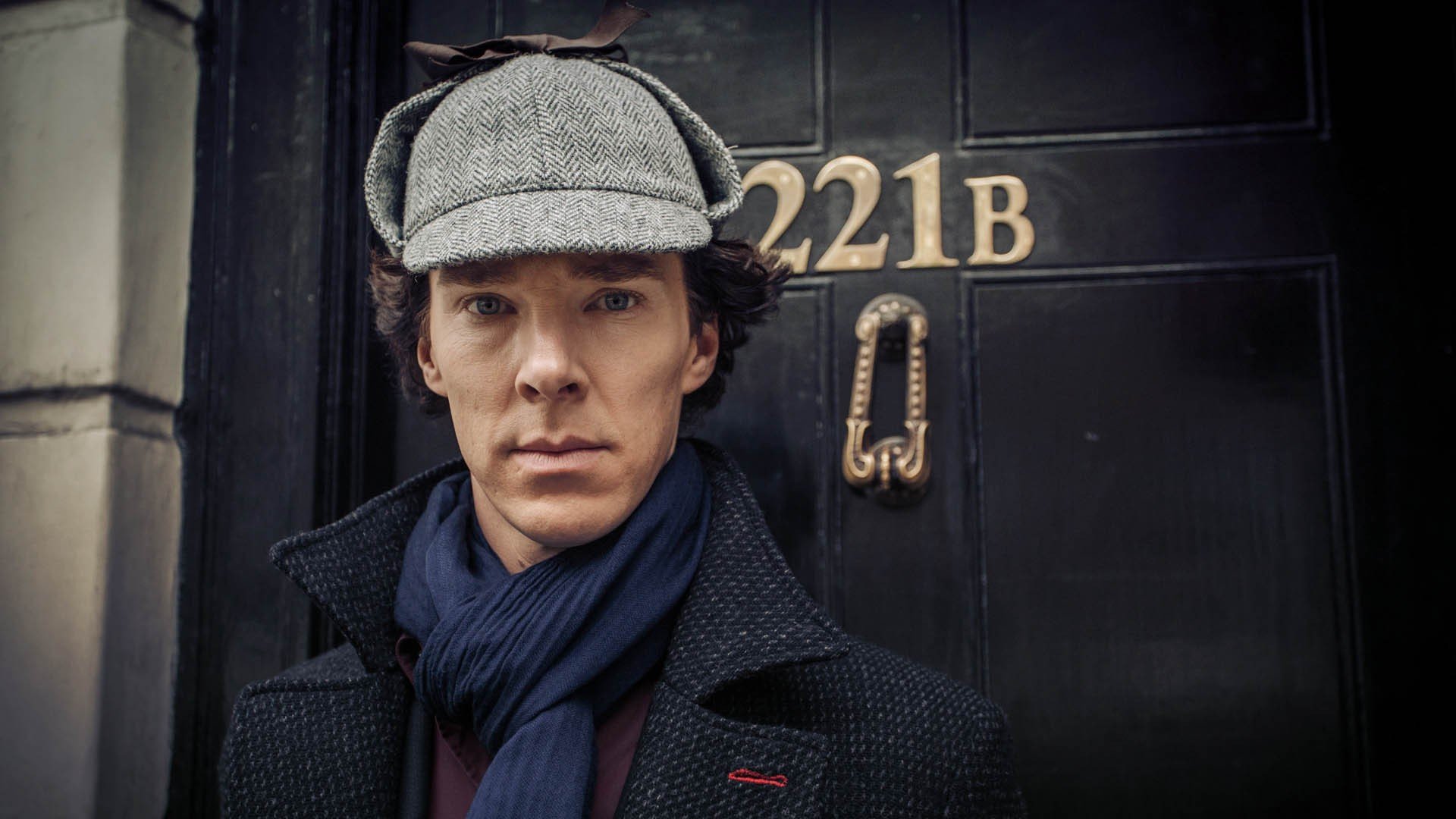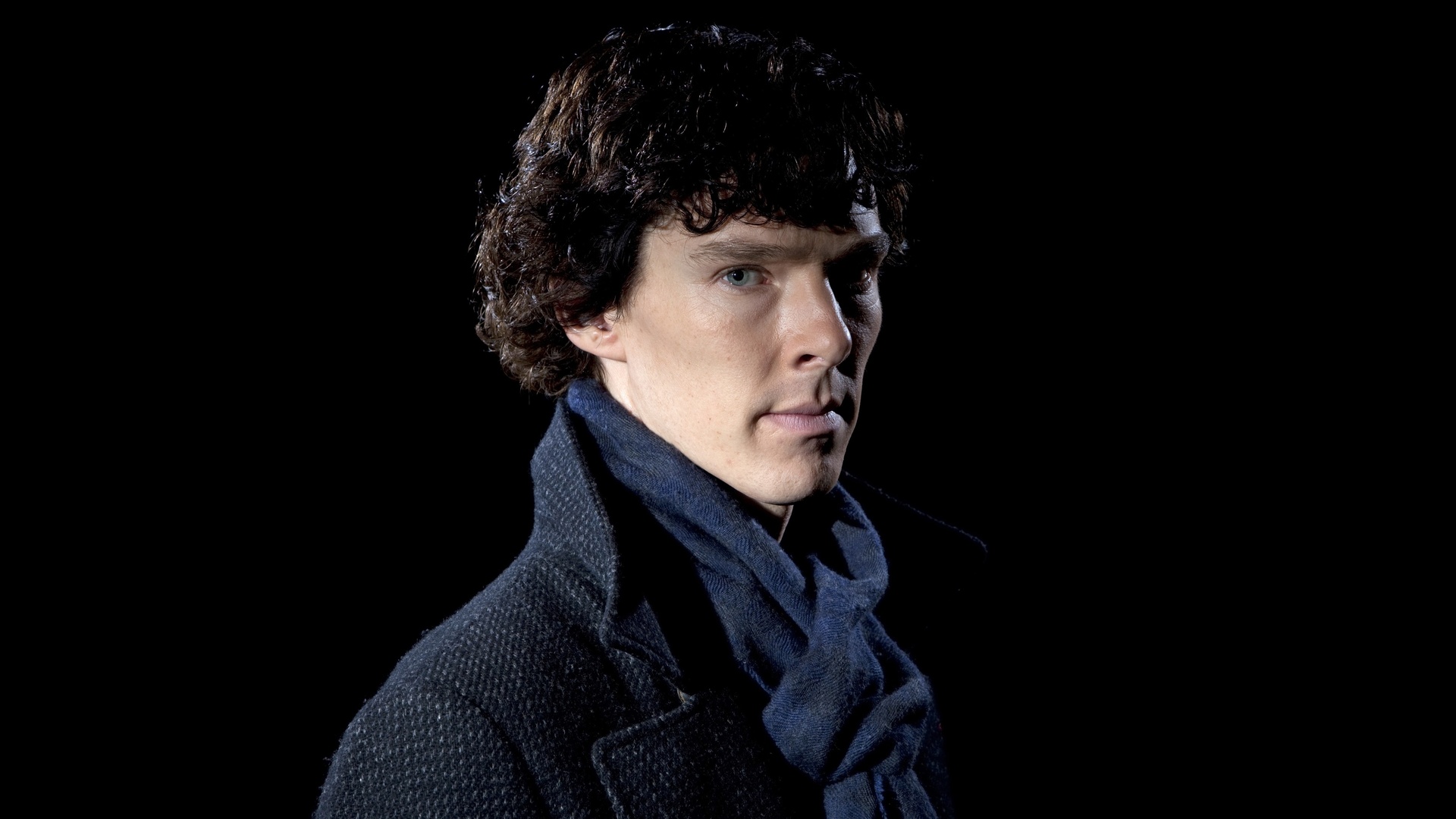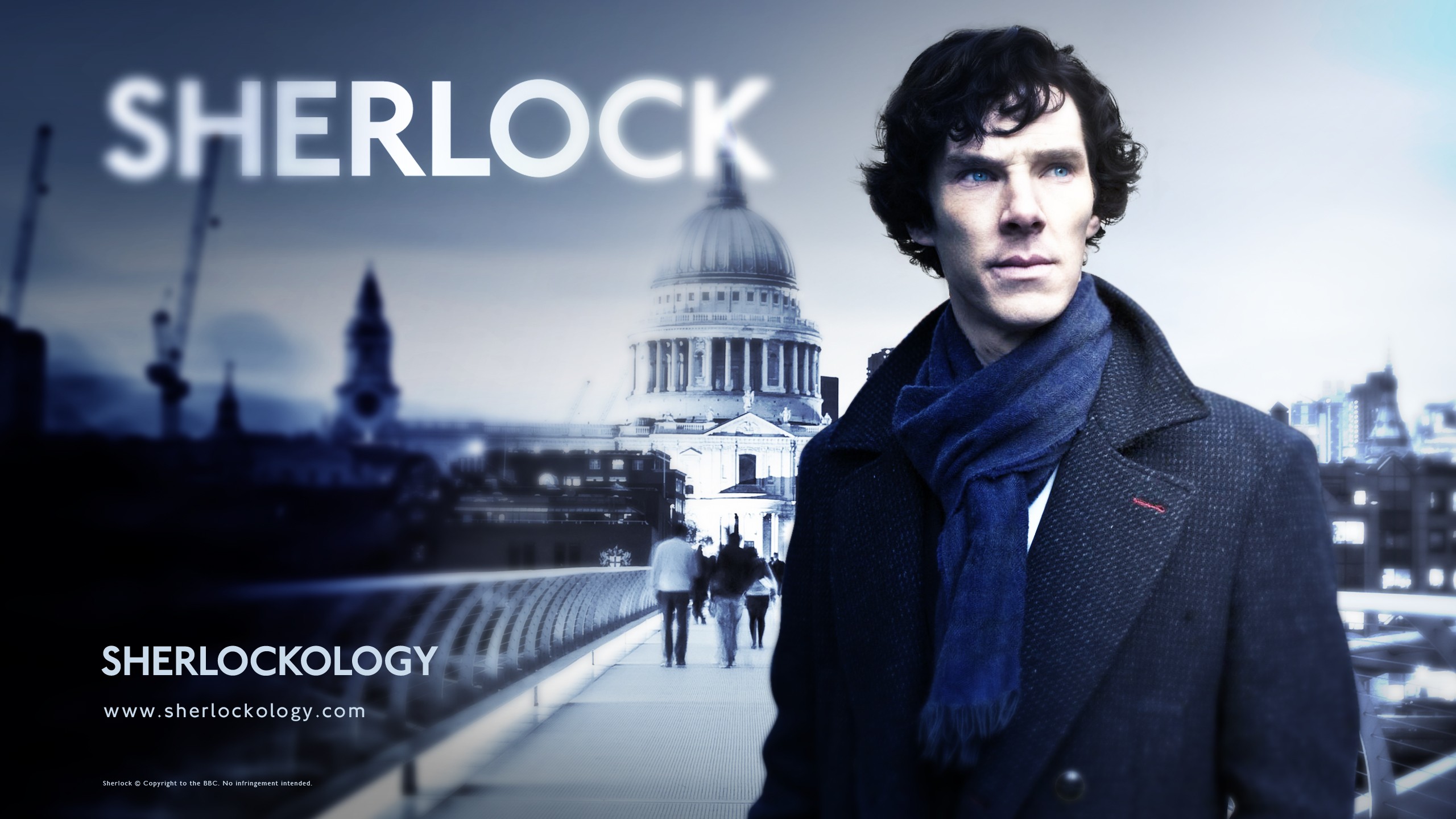Unpacking The Brilliance Of **Benedict Cumberbatch In Sherlock**: A Deep Look At An Iconic Portrayal
There are performances that simply stick with you, moments on screen that change how you see a character forever, and when it comes to the legendary detective, Sherlock Holmes, one actor truly made the role his own. We're talking about the captivating work of Benedict Cumberbatch, whose turn as the high-functioning sociopath in the BBC series "Sherlock" redefined the character for a new generation, you know.
His portrayal brought a fresh, modern energy to a figure often seen as traditional, even a bit dusty. This version of Holmes, with his quick wit and often challenging personality, really resonated with audiences around the globe. It's almost as if he was born to play the part, don't you think?
The name Benedict, as a matter of fact, can be found in many different places, from the historical Benedict College, founded in 1870 by a woman named Bathsheba A., to other varied contexts. Yet, for so many fans, that name is now firmly connected to the sharp mind and distinctive coat of Baker Street's most famous resident. This article will explore what made his performance so memorable and why it continues to be celebrated.
- Bradley Cooper Girlfriend Now
- Hugh Jackman On Broadway
- Cillian Murphy Jack Rippner
- Denzel Washington House
- Mark Ruffalo Daughter
Table of Contents
- Benedict Cumberbatch: A Brief Overview
- The Man Behind the Mind: Personal Details
- Crafting the Modern Holmes
- The Nuances of Sherlock's Character
- Chemistry and Connections: The Cast's Role
- The Show's Lasting Impact and Cultural Footprint
- Fan Reception and Critical Acclaim
- Frequently Asked Questions About Benedict Cumberbatch's Sherlock
- Why His Performance Still Matters
Benedict Cumberbatch: A Brief Overview
Benedict Timothy Carlton Cumberbatch has built a reputation for taking on complex and often quite intelligent characters. Before "Sherlock," he had already made a name for himself in theater and film, showing a range that suggested he could handle big roles. He has this way of bringing a certain depth to his characters, which, as a matter of fact, makes them feel very real, even when they are larger than life. His work has spanned across many genres, from historical dramas to science fiction, really showing how adaptable he is as a performer.
The Man Behind the Mind: Personal Details
Getting to know a bit about the person behind the character can sometimes shed light on the performance itself. Here’s a quick look at some details about Benedict Cumberbatch.
| Detail | Information |
|---|---|
| Full Name | Benedict Timothy Carlton Cumberbatch |
| Date of Birth | July 19, 1976 |
| Place of Birth | London, England |
| Education | Harrow School, University of Manchester, London Academy of Music and Dramatic Art (LAMDA) |
| Spouse | Sophie Hunter |
| Children | Three sons |
| Notable Roles (Selected) | Sherlock Holmes (Sherlock), Alan Turing (The Imitation Game), Doctor Strange (MCU), Smaug (The Hobbit films) |
His background in classical theater, as you can see, really helped shape his acting style, giving him a command of language and a stage presence that translated so well to the screen. He has, too it's almost, a natural intensity that helps him connect with audiences.
- Steve Carell Hair Plugs
- Harrison Ford General Ross
- Tom Hardy Twin Movie
- Anthony Hopkins James Bond
- Christian Bale Give Me Your Shoes
Crafting the Modern Holmes
When "Sherlock" first appeared on screens in 2010, it brought something fresh to the detective genre. Benedict Cumberbatch’s portrayal of Sherlock Holmes wasn't just a rehash; it was a reinvention. He managed to capture the essence of Arthur Conan Doyle’s character while making him feel completely at home in the 21st century. This involved a lot of things, you know, from how he spoke to how he moved.
His voice, for instance, became a signature element. That rapid-fire delivery, the way he would string together complex thoughts at lightning speed, made you believe in Sherlock’s extraordinary mind. It wasn't just speaking quickly; it was about the precision, the rhythm, and the almost musical quality of his deductions. He truly made those long monologues feel like a performance in themselves, which is that, a real talent.
Then there was the physicality. Sherlock often seemed to be in constant motion, a bundle of nervous energy. Cumberbatch used his tall frame to convey a certain awkward grace, a man who was perhaps more comfortable with thoughts than with people. The way he would lean in, or gesture, or even just stand perfectly still, communicated so much about Sherlock’s internal state. It was, quite honestly, a masterclass in body language, showing a character who was always observing, always processing, and very much, always a bit apart.
He also brought a surprising amount of humor to the role. Sherlock’s bluntness, his social ineptness, and his often-unintentional insults were frequently laugh-out-loud funny. Cumberbatch played these moments with a straight face, which only made them funnier. It was a delicate balance, making Sherlock likable despite his often abrasive personality, and that, is that, a very hard thing to do.
The Nuances of Sherlock's Character
What truly made Benedict Cumberbatch's Sherlock so compelling was the layers he brought to the character. Sherlock Holmes, as presented in this series, wasn't just a brilliant machine; he was a person with struggles and vulnerabilities, even if he tried to hide them. Cumberbatch allowed glimpses of these deeper feelings to show through, which really connected with viewers.
You’d see moments of genuine frustration, not just with criminals, but with himself or with the limitations of others. There were times when his arrogance would crack, revealing a man who, perhaps, felt a little lonely or misunderstood. This complexity made him more than just a clever detective; he became a figure you could, in a way, empathize with, even if his methods were sometimes questionable.
His relationship with emotions was also a big part of the character. Sherlock often claimed to be above such things, viewing them as distractions. Yet, Cumberbatch would show subtle hints of attachment, especially to John Watson. A slight softening of the eyes, a moment of hesitation, a barely perceptible shift in his posture – these small things conveyed a lot about Sherlock’s inner world, suggesting he was, perhaps, not as detached as he wanted everyone to believe. It was a very human touch to a character often seen as purely logical, which, you know, made him even more interesting.
The series, and Cumberbatch's performance, explored the idea of genius and its cost. Sherlock’s mind was his greatest asset, but also, in some respects, his burden. He saw things others didn’t, but that also meant he often felt isolated. Cumberbatch conveyed this sense of being different, of living in a world of his own thoughts, which, naturally, set him apart. He made you feel the weight of Sherlock's extraordinary intellect, and the toll it could take.
Chemistry and Connections: The Cast's Role
While Benedict Cumberbatch’s performance was undeniably central, the success of "Sherlock" also relied heavily on the incredible connections between the cast members. A detective story, after all, is often about the people involved, and this show had some truly memorable pairings. The way the actors played off each other, as a matter of fact, really brought the stories to life.
The dynamic between Cumberbatch’s Sherlock and Martin Freeman’s Dr. John Watson was, without a doubt, the heart of the show. Freeman played Watson with a grounding presence, a loyal friend who was often exasperated but always there. Cumberbatch’s Sherlock, for his part, showed a deep, if often unspoken, reliance on Watson. Their banter, their arguments, and their moments of quiet understanding felt incredibly real. It was a partnership that felt earned, and very much, the foundation of the series.
Then there was the relationship with Andrew Scott’s Jim Moriarty. Scott brought a chaotic, unsettling energy to the role, making Moriarty a truly memorable adversary. The scenes between Cumberbatch and Scott were electric, full of tension and a strange, almost intellectual respect. It was like watching two chess masters, or maybe, two very clever performers, trying to outwit each other, and you could practically feel the sparks fly. Their clashes were, quite frankly, some of the most exciting parts of the show, and really, they pushed each other to new heights.
Other supporting characters, like Mycroft Holmes (played by Mark Gatiss, who also co-created the show) and Mrs. Hudson (Una Stubbs), also played a big part. Mycroft provided another intellectual foil for Sherlock, showing a different side of the Holmes family mind. Mrs. Hudson offered a touch of warmth and exasperated affection, reminding Sherlock, in a way, that he was still connected to the world. These relationships, you know, helped to round out Sherlock’s character, showing him in different lights and bringing out various facets of his personality.
The Show's Lasting Impact and Cultural Footprint
"Sherlock," with Benedict Cumberbatch at its center, did more than just entertain; it left a real mark on television and popular culture. It showed that classic characters could be reimagined for a modern audience without losing their original spirit. The show's influence can still be seen in many ways, which, actually, is quite something.
For one thing, it really kicked off a trend of modernizing classic literary figures. After "Sherlock," we saw other shows try similar approaches, taking well-known characters and placing them in contemporary settings. It proved that there was an appetite for smart, witty, and visually engaging adaptations, and that, is that, a significant shift in television production.
The show also had a massive global reach. It became a phenomenon in many countries, attracting millions of viewers and building a dedicated fan base. People loved the clever mysteries, the fast-paced dialogue, and, of course, the performances. The series became a topic of conversation, sparking discussions online and inspiring fan creations, which, you know, is a sign of true engagement.
Its distinctive visual style also played a role. The use of on-screen text messages, the rapid cuts, and the way Sherlock’s deductions were visually represented, all felt very fresh at the time. These techniques helped to convey the speed and complexity of Sherlock’s mind, making the viewing experience more immersive. It was, in some respects, a very innovative approach to storytelling, and it set a new standard for how a detective’s thoughts could be shown on screen.
Even years after its last episode, "Sherlock" continues to be talked about and rewatched. Its stories hold up, and the performances remain compelling. It has a place in the history of television as a show that, quite simply, did things differently and did them very well. It's almost, in a way, a timeless piece of television, still drawing in new viewers today.
Fan Reception and Critical Acclaim
From the moment "Sherlock" premiered, it was clear that Benedict Cumberbatch’s portrayal was something special. The reaction from both audiences and critics was overwhelmingly positive, and it really solidified his place as a leading actor. People just couldn't get enough of his version of the famous detective, you know.
Fans immediately connected with his take on Sherlock. They loved the intelligence, the quirks, and even the moments of vulnerability he allowed to show through. Social media was, and still is, full of discussions about his performance, favorite lines, and memorable scenes. The show generated a huge amount of fan art, fan fiction, and online communities, which, as a matter of fact, is a strong indicator of how deeply people felt about it.
Critics, too, showered praise on Cumberbatch. They highlighted his ability to deliver complex dialogue with ease, his commanding screen presence, and his skill at bringing depth to a character that could easily have been one-dimensional. Reviewers often pointed to his unique blend of arrogance and charm, making Sherlock both infuriating and incredibly compelling. He received numerous awards and nominations for his work on the show, including a Primetime Emmy Award for Outstanding Lead Actor in a Miniseries or a Movie, which, really, speaks volumes about the quality of his acting.
The show's success, and Cumberbatch's performance in particular, also helped to boost his career significantly. It opened doors to major film roles and further cemented his reputation as an actor who could tackle challenging and iconic characters. It was, in a way, a defining role for him, and one that many people still associate him with most strongly. The excitement around each new season was palpable, and a lot of that was down to the anticipation of seeing him back as Sherlock.
Frequently Asked Questions About Benedict Cumberbatch's Sherlock
Many people have questions about Benedict Cumberbatch's time as Sherlock Holmes. Here are some common ones:
How old was Benedict Cumberbatch when he played Sherlock?
Benedict Cumberbatch was around 33 years old when the first episode of "Sherlock" aired in July 2010. He was born in July 1976, so he was in his mid-thirties during the show's run, which, you know, is a pretty good age to take on such a demanding role.
Did Benedict Cumberbatch enjoy playing Sherlock?
From various interviews and public appearances, it seems Benedict Cumberbatch had a very complex relationship with the role, but ultimately, he expressed a deep appreciation for it. He often spoke about the challenges of the fast-paced dialogue and the intensity of the character. However, he also clearly enjoyed the creative process and the camaraderie with the cast and crew. He understood the impact the role had on his career and on audiences, which, as a matter of fact, suggests a real sense of pride in his work.
Is Sherlock a good show to watch?
Many viewers and critics would say "Sherlock" is a very good show to watch. It's known for its clever writing, intricate mysteries, strong performances, and engaging visual style. While some people might find the pace fast or the character of Sherlock a bit much at times, its overall quality and lasting popularity speak for themselves. If you enjoy smart detective stories with a modern twist, it's definitely worth checking out, and you might find yourself really drawn into its world.
Why His Performance Still Matters
The impact of Benedict Cumberbatch’s portrayal of Sherlock Holmes continues to resonate, even years after the series concluded. It’s more than just a performance; it’s a benchmark for how to bring a classic character to life for a new generation. His work on "Sherlock" showed that you could be respectful of the source material while also being incredibly innovative, which, as a matter of fact, is a hard balance to strike.
He created a Sherlock that felt both familiar and entirely new, a character who was brilliant and flawed, arrogant and, at times, surprisingly vulnerable. This complexity made him truly unforgettable. It’s a performance that people will likely study and enjoy for many years to come, a testament to his skill as an actor. He truly made the character his own, and that, is that, a remarkable achievement.
If you're looking to revisit this incredible series, or perhaps discover it for the first time, you can learn more about the show's creation on our site,
- Edward Norton Cornrows
- Tom Hanks Lives In Airport
- Steve Carell Early Office
- Tommy Lee Jones Fishing Boat Movie
- Tom Hiddleston Fashion

Benedict Cumberbatch, Sherlock HD Wallpapers / Desktop and Mobile

Benedict Cumberbatch Sherlock - Wallpaper, High Definition, High

Benedict Cumberbatch Sherlock Wallpaper - WallpaperSafari